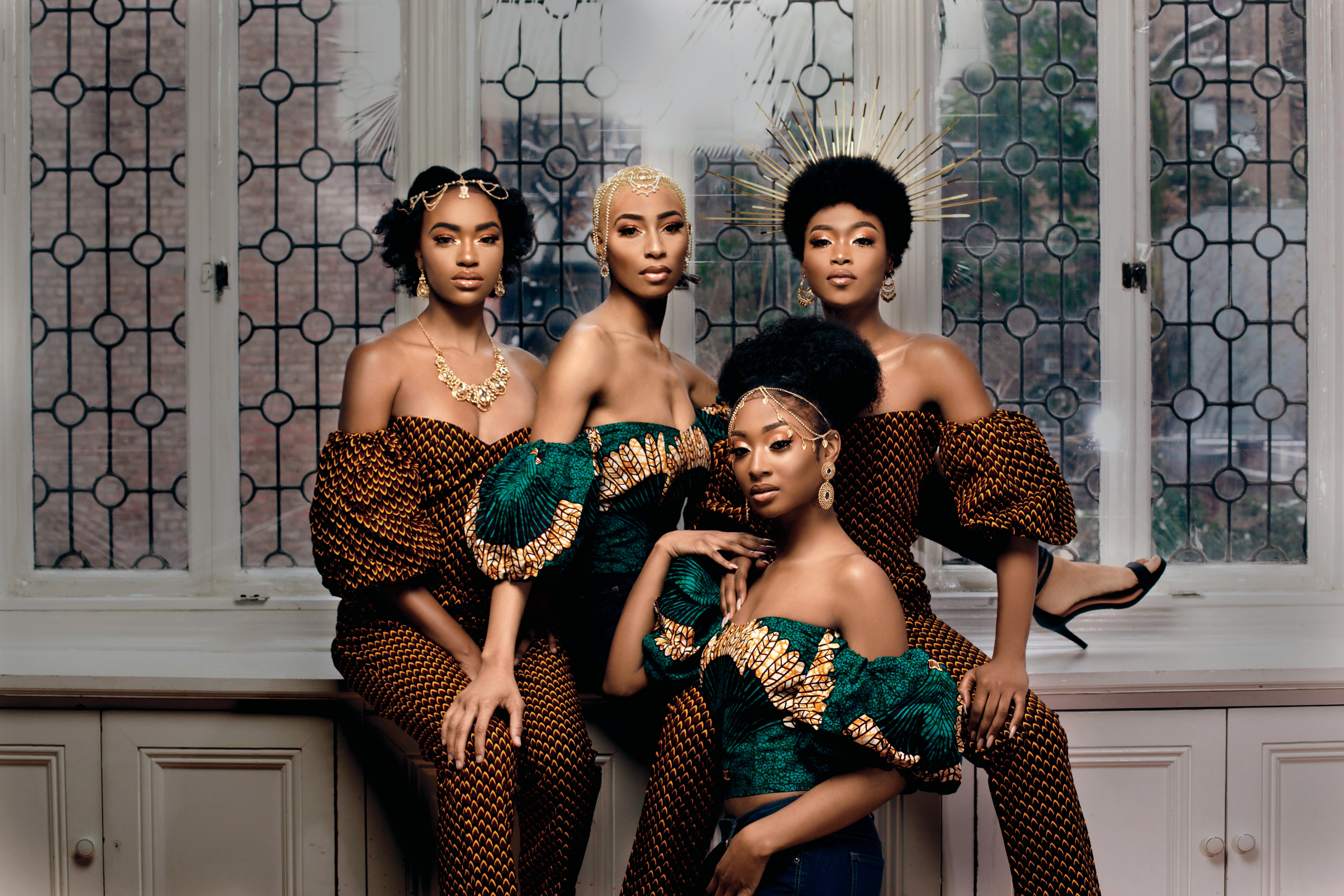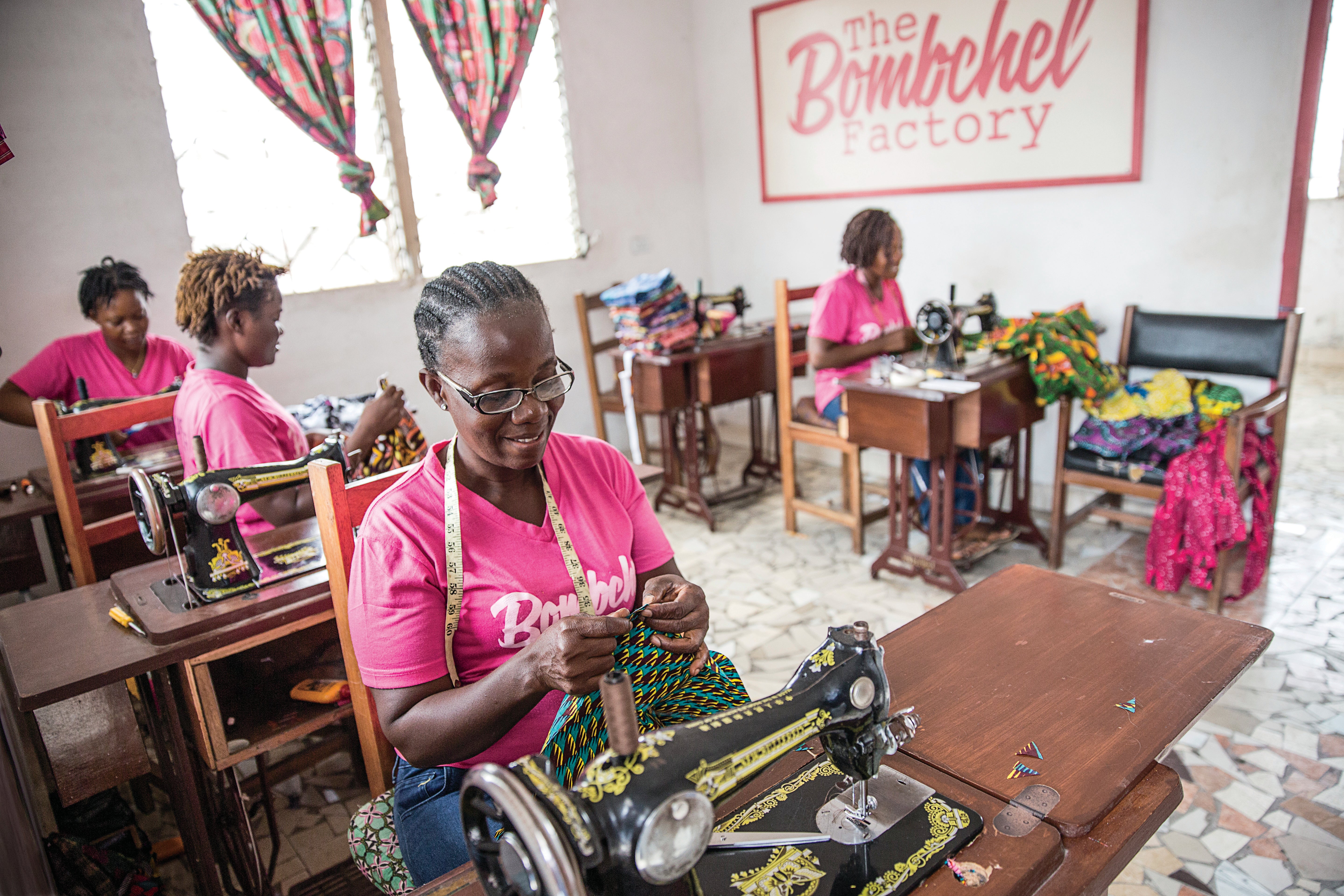When you shop for fashion items, do you ever wonder what materials were used to make them and where they came from? Who’s actually producing the material? And under what conditions are people working to get you those designer items? If you’re trying to be more socially conscious about the clothing and accessories you wear, then you have to consider the steps fashion brands are taking to protect the planet and people involved in the design, production, distribution and disposal of apparel and accessories. The aim should be to reduce the negative environmental and social impact of each brand’s overall systems, processes, practices and supply chain.
The ethical fair-trade fashion industry, which seemed to be a niche market ten years ago, is now becoming mainstream. Consumers are increasingly becoming socially aware. Among designers, Tracy Reese is one who has recently taken a leap into more responsibly produced fashion. With her newly launched label, Hope for Flowers, based in Detroit, Reese is all about social consciousness. In an interview with Vogue, she explained, “The more I learned about fast fashion and cheap production in general, I just knew that was the antithesis to everything I was thinking about. If you’re selling a garment for $10, let’s just do the math and understand what that means for all the people along that supply chain. It’s like slavery. I knew I didn’t want anything to do with that, so it made me get really serious about what I did want.”
Reese isn’t the only designer who is opting for a more moral approach to fashion. Haitian-Italian designer Stella Jean—whose bold prints have been seen on Rihanna, Beyoncé and Zendaya—was invited by the United Nations International Development Organization to participate in an ethical-fashion program that helps create employment opportunities for local artisans. “Our mission is to safeguard tradition and work together to embolden local communities. In fact, our motto is ‘Not Charity, Just Work,’ ” Jean says. “Everyone deserves to be paid for their work, not given a handout or paid a percentage. We need to treat everyone equally. Otherwise, we keep broadening the divide that separates us.”
When it comes to fashion brands that value ethical methods, you’re not likely to find many luxury labels taking the lead. But indie brands are at the forefront in allowing artisans in developing countries to get their shine. Take Chioma Ngwudo, the cocreator of Cee Cee’s Closet NYC. She launched her fashion site after a trip to Nigeria. “That trip reopened my eyes to the beauty of Nigeria, and I wanted a vehicle to share that beauty with others,” she says. “When I found these gorgeous handmade clutches in a market, I was immediately struck by the craftsmanship. They were the perfect gift for me and my sister and just the accessory I needed to spice up my graduation party look. At the party, they were a hit. My friends kept asking me where they could get a bag like mine, and the idea for Cee Cee’s Closet NYC was born.”

Cee Cee’s Closet NYC values the intricate care that the local Nigerian artisans put into their work. Whether it’s a head wrap or dress, the craftspeople hired by Ngwudo are talented tailors who bring her vision to life. “We choose partners based on skill, timeliness and reliability,” says Ngwudo.
Socially Aware Consumers
Millennials and Gen Zers tend to be more socially conscious consumers because they are willing to act on the change they want to see in the world. But companies pay attention to this consumer segment not because of their idealism but because of their purchasing power. According to a report by McKinsey & Co., one of the world’s largest consulting firms, the millennial and Gen Z demographics represent around $350 billion in spending power in the United States alone, with roughly $150 billion spent by Gen Z and some $200 billion by millennials. “Additionally, Gen Z will account for 40 percent of global consumers by 2020,” the report continues. “But concern over environmental and social issues is not restricted to younger consumers. Some two thirds of consumers worldwide say they would switch, avoid or boycott brands based on their stance on controversial issues. Half of these regard themselves as activists, driven by passion. The other half are less dogmatic, tailoring their decision to the situation at hand.”
Kendra Bracken-Ferguson, a digital branding, marketing and communications expert known for creating the social media footprint for fashion behemoth Ralph Lauren, has worked with other notable brands and is currently the chief business officer of Beautycon. She believes the fashion industry is becoming more socially mindful in its ethics, standards and practices because the consumer demands it. “We have shifted to a place where companies have to be responsible, because millennials want to understand where their products are made and how that impacts the environment,” she says, noting that the Nielsen Global Corporate Sustainability Report found that 60 percent of consumers are willing to spend more on a product if it comes from a sustainable brand. “With this generation taking a stand against mass consumption of clothing, we are seeing the rapid decline of some of the most influential » fast-fashion brands due to the depleting of resources, which has become more of a concern,” says Bracken-Ferguson.

Meanwhile, indie designers are stepping up. Archel Bernard, owner of The Bombchel Factory and Mango Rags boutique in Monrovia, Liberia, graduated from Georgia Tech in Atlanta and wanted to give back to women affected by Ebola in Liberia. “Rather than donating to charities, which can sometimes create a dependent society, social entrepreneurship allows us to foster independence,” she reflects. “When I opened my first boutique, fashion brought countless opportunities for me, and I saw it as my duty to create opportunities for other women to grow and thrive as well.” Bernard believes that it’s time for companies to focus more on being honorable than on being fashionable at any cost. “A dress can’t be beautiful unless it’s kind,” she says. “Second to oil, the clothing and textile industry is the largest polluter in the world. Add to that, most clothes on the market are made in countries where workers’ rights are nonexistent. Ethical sourcing is usually not the most affordable way to grow a business, but if brands can pick at least one way to make a positive impact, we can all move fashion in a better direction.”
Human and Environmental Implications
In a 2017 report, the Copenhagen Fashion Summit found that the fashion industry consumed nearly 80 billion cubic meters of fresh water, emitted more than a million tons of carbon dioxide and produced 92 million tons of waste. Yet so many of us never consider that the mere manufacturing of clothing has an impact on the environment. Projected to grow 63 percent by 2030, garment production utilizes resources that simply can’t be replaced. But 40 percent of all fashion companies haven’t started to implement sustainability measures. Among the biggest players that make more than $10 billion in revenues each year, the pace of improvement has basically stalled.
Ethical sourcing is usually not the most affordable way to grow a business, but if brands can pick at least one way to make a positive impact, we can all move fashion in a better direction. – Archel Bernard
Then there is the human cost. Luiz Machado, technical specialist on forced labor in Geneva, believes more people should be concerned about this aspect of fashion even if they don’t think it affects them. “It’s all linked to human trafficking,” he points out. “If you are exploiting forced labor, you are not paying taxes, not paying proper wages and end up having a product that might cost less to the consumer, but the issues of exploitation are hidden within this end price. No worker should suffer this kind of exploitation.” Machado cites resources, like the nonprofit organization KnowTheChain, that can help companies and their investors understand and address forced-labor risks within their global supply networks. “Basically, companies should freely provide information to consumers on who their suppliers are,” he says. He also suggests that countries in which foreign brands have production interests should make it mandatory for those brands to monitor the environmental and social impacts of their supply chain. One way to enforce brand accountability is to force companies to pay a hefty fine if they fail to do so. Perhaps then we might start seeing the change socially cognizant consumers are calling for. The planet, our lives and the dignity of our fellow humans are depending on it.
